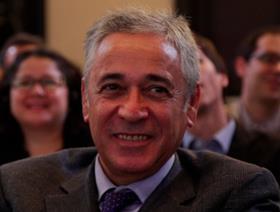
Extending the shelf-life and freshness of fruits and vegetables does not have to mean compromising on other quality traits and environmental issues, according to Benito Orihuel, CEO of leading Spanish postharvest solutions provider Citrosol.
Speaking during a session on pre- and postharvest technology at last week’s Eurofruit Congress Southern Hemisphere in Lima, Orihuel said growers face a constant dilemma to find new ways to deliver fresher fruits and vegetables without impacting negatively on fruit residues and the environment.
Orihuel pointed out that concerns about the environment and sustainability, as well as fears about food safety and pesticide residue levels, were the key drivers to innovation in postharvest technology and treatment.
“Our aim is to deliver products with greater efficacy and better application systems that will help producers to grow more sustainably and minimise their impact on the environment,” he explained. “We are about much more than extending shelf-life: we sell results rather than products,” he told the assembled delegates.
Citrosol is the leading supplier of postharvest solutions to the Spanish citrus industry and the company is now expanding its customer base in Latin America. Its product offering includes a new range of citrus coatings designed for companies that ship their fruit to distant markets, and Citrocide® PC P, a new pepper washing system that creates a barrier to prevent microbiological cross contamination and postharvest decay.
Orihuel, himself a qualified food scientist with a PhD in Biology and Postharvest Technology, plays a hands-on role, leading all of the company’s research programmes. In the past four years the company’s annual sales have increased by around 50 per cent.
More than 250 key industry players from a total of 17 countries attended Eurofruit Congress Southern Hemisphere, a two-day conference and networking event designed to uncover new opportunities in Peru’s fresh produce business.



